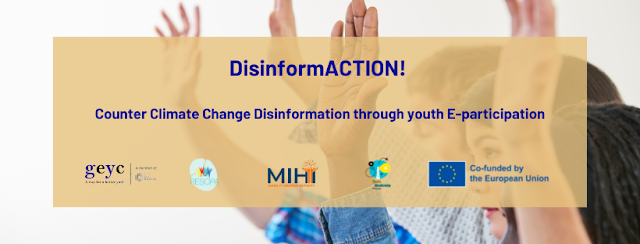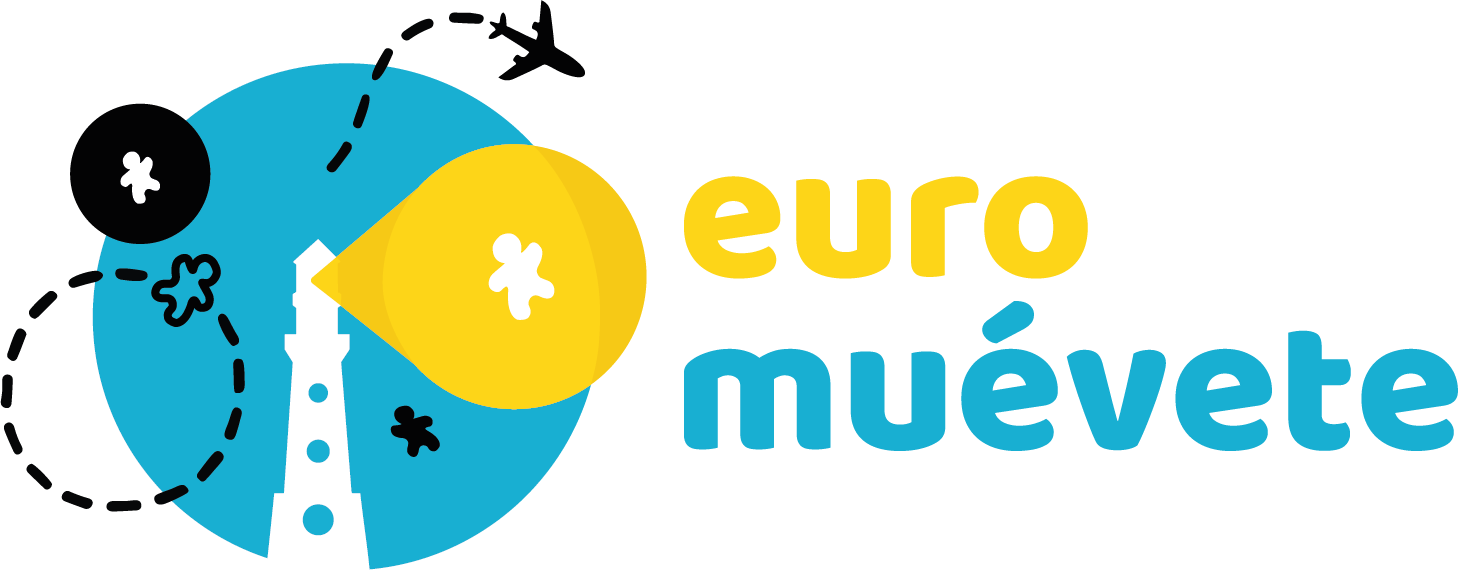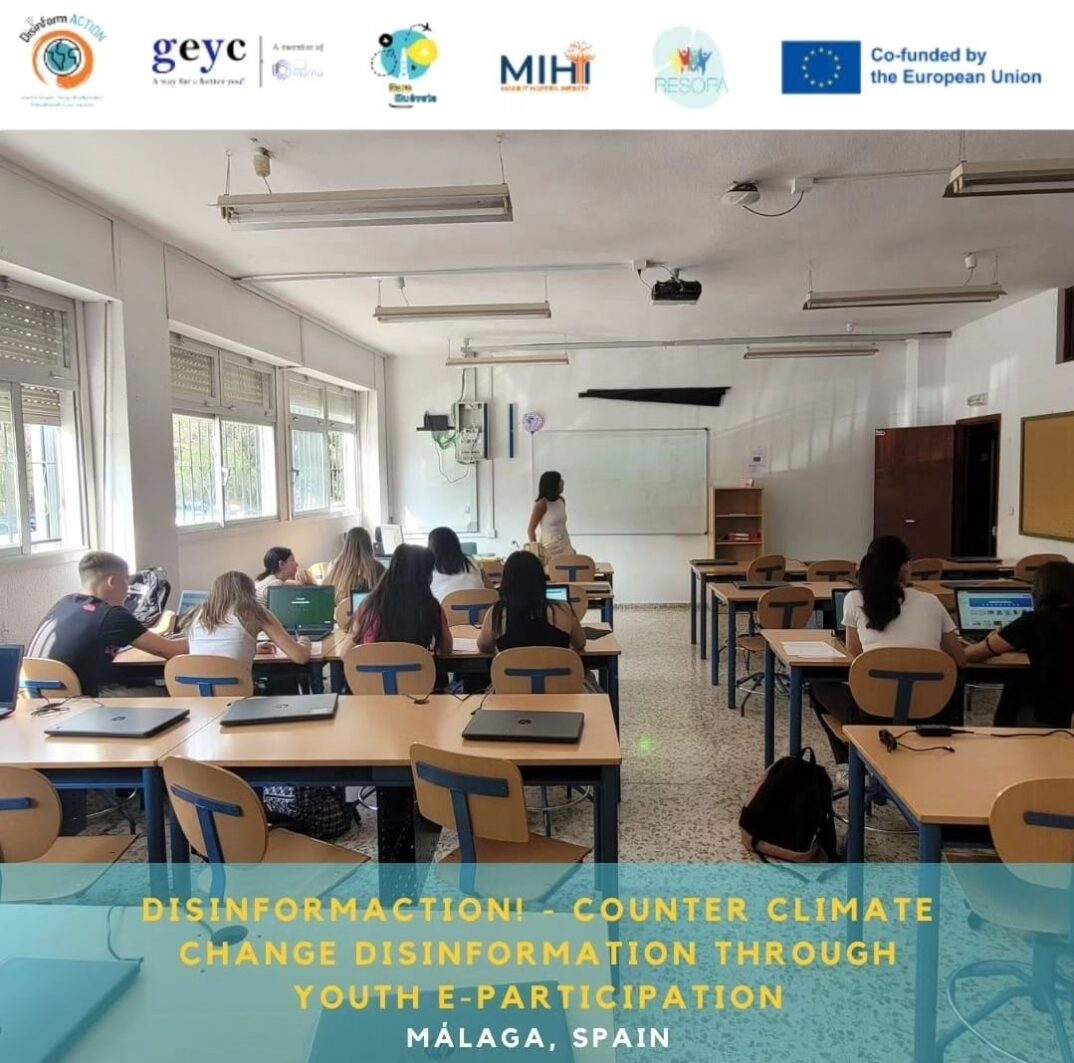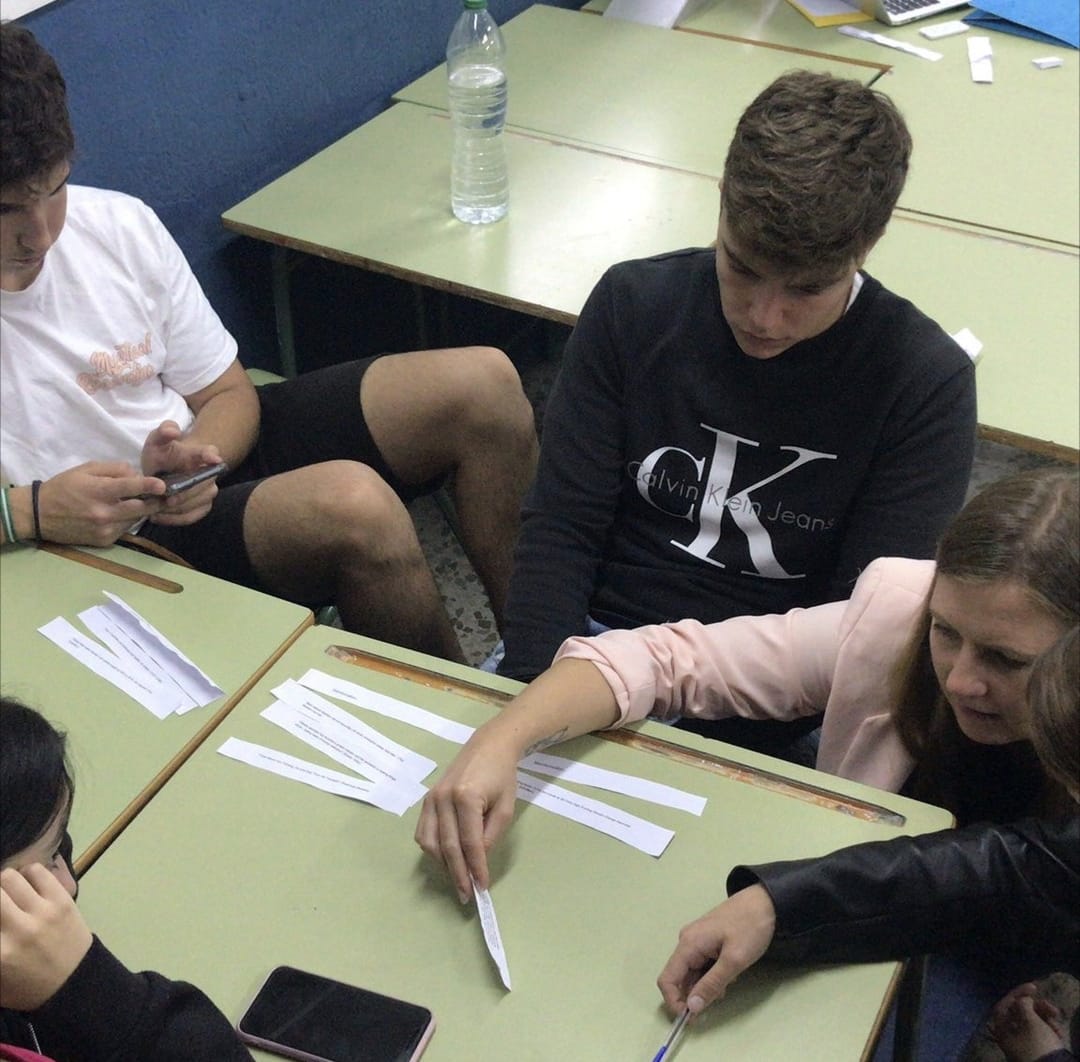“DisinformACTION! – Counter Climate Change Disinformation through youth E-participation” – National workshops based on the methodology

Together with the El Palo Institute between 5-14 of June 2023 we have organized the workshops as part of the project “DisinformACTION! – Counter Climate Change Disinformation through youth E-participation”.
The workshops aimed to equip students with the knowledge and skills to identify and counter misinformation and disinformation surrounding climate change, while also empowering them to find their voice and stand up for issues related to climate change.
The workshops were conducted using an interactive and participatory approach. The methodology involved the following steps:
a. Selection of participating schools based on their interest and commitment;
b. Signing a collaboration protocol with the schools, stating all the details of the collaboration;
c. Conducting a qualitative research among the students through pre and post questionnaires, designed to measure the level of knowledge and confidence in the topics before and after the workshops;
c. Facilitation of the workshop sessions in each country designed to be engaging, informative, and age-appropriate.
d. Use of multimedia resources, group discussions, case studies, and interactive activities to enhance learning.
The workshop covered the following chapters:
Chapter 1: Critical online citizens
Chapter 2: Effective online communication
Chapter 3: Climate Change Ambassadors
Chapter 4: Digital tools for e-participation
The order of the chapters is different from the application stage, as during the process of creating the methodology and activities, the partners noticed that it is more logical to switch two of the chapters (3 and 4).
The workshops were delivered by experienced facilitators who combined their expertise on the topics with pedagogical skills. The sessions were designed to be interactive, fostering active student participation. The delivery approach included several non-formal education methods, among which:
a. Engaging multimedia presentations to convey information effectively.
b. Group discussions to encourage critical thinking and knowledge sharing.
c. Hands-on activities to enhance understanding and application of concepts, as well as different digital tools.
d. Icebreakers and team building activities.
e. Debates, simulations.
EuroMuévete partnered up with 1 school from Málaga and we reached 135 students from 6 classes, aged 15-19 years old. We applied the previously developed Climate Change Ambassadors Methodology, split into 2 days (since all the activities last around 4 hours, it was too much for just 1 day, which is why we agreed with the schools to have 2 hours in one week, and 2 hours the next week). The first part was chapter 1 and 2, that day we explained to them what disinformation, misinformation, factual information, climate change and online campaigns are and then we made some activities to put into practice what we have taught. We left the last part of chapter 2 (the quiz) for the next session with the aim of reminding students of the concepts they have already seen at the same time we introduced one of the digital tools, Mentimeter. The second day we worked in chapters 3 and 4, where we explained civic engagement and digital civic engagement by youth and we gave examples of different types of engagement, such as creating a new campaign, becoming an active member in an existing campaign or becoming an active supporter by simply actively sharing information. From the surveys we conducted after the workshops, we have gathered the following results:
– The majority verify the story before sharing it, understand why it is important to consult different media, are careful about the language they use online and think that disinformation/misinformation about climate change is very dangerous and young people should use their voice to fight it.
– However, most students are not entirely comfortable sharing their opinions online, even in person. Therefore, if they see something online that they do not agree with, they simply ignore it and do not comment on it.
– In contrast to the surveys we conducted before the workshops began, in the subsequent surveys, in general, almost everyone was able to answer the difference between misinformation and disinformation, at the same time, they were able to name different ways in which you can say that an online publication or article is a fake news.
– Almost 90% responded well to the question on the definition of climate change and to the question on effective online communication.
In terms of experience, the highest responses were that they did like the workshops, that they more or less understood how to identify and counter climate change disinformation/misinformation, that they do feel they learned new skills, that the digital tools presented were interesting and that they will behave differently online as a result of the workshops.
Another part of the project will be training for teachers. Follow us for new opportunities.
Instagram posts


